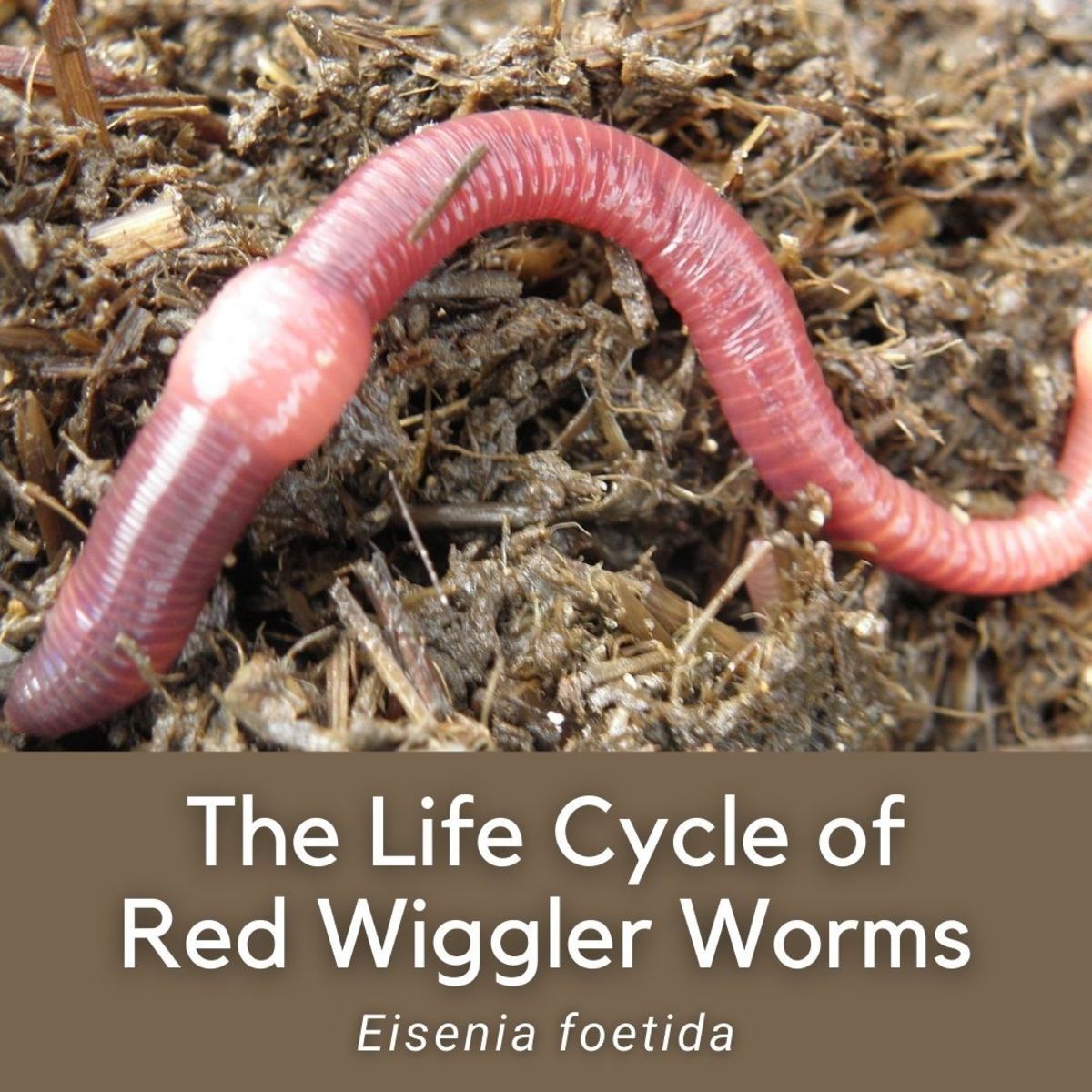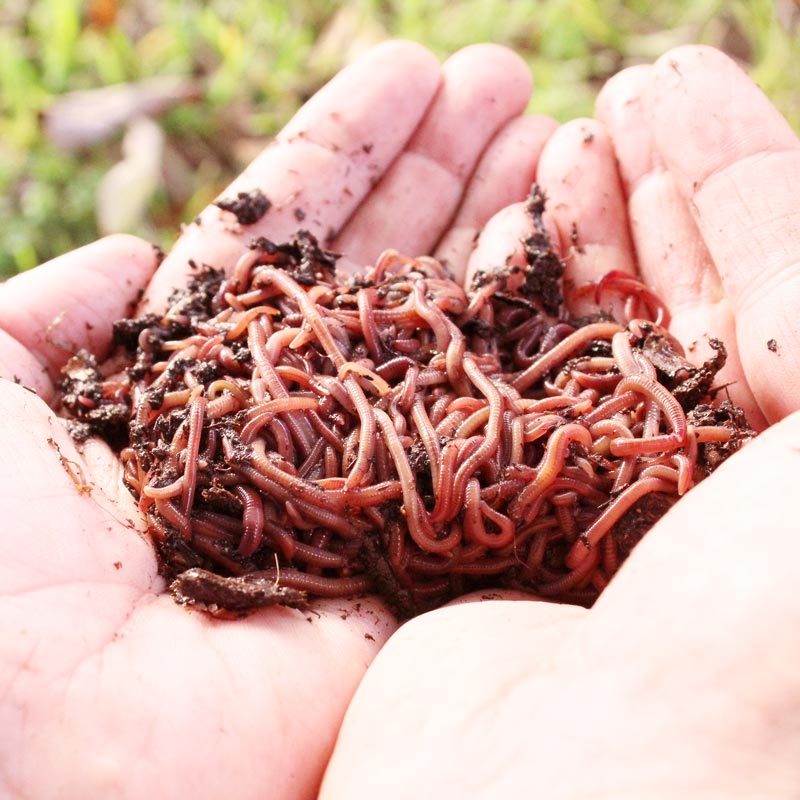Get Red Wiggler Worms - Ideal for Composting and Horticulture
Get Red Wiggler Worms - Ideal for Composting and Horticulture
Blog Article
Red Wiggler Worms Demystified: Unlocking the Keys of Vermiculture for Greener Living and Nutrient-Rich Dirt
In the world of sustainable techniques for enhancing dirt top quality and promoting eco-conscious living, red wiggler worms play a crucial yet frequently ignored duty. These humble animals possess the amazing ability to transform natural waste into nutrient-rich spreadings that function as a potent all-natural fertilizer. By delving right into the world of vermiculture, one can reveal a wide variety of advantages that prolong much beyond conventional composting techniques. Comprehending the details of taking care of these worms, maximizing their environment, and utilizing their castings can result in a greener way of life and much healthier soil for plants to grow.
The Duty of Red Wiggler Worms
Red Wiggler worms play an essential role in composting systems by effectively breaking down organic issue right into nutrient-rich castings. These starved eaters eat a variety of organic materials, such as cooking area scraps, yard waste, and paper products. As they feed, the worms' digestive system processes break down the natural issue into a fine, dark, and nutrient-dense product called worm castings or vermicompost.
The spreadings generated by Red Wiggler worms are highly beneficial for dirt health and plant development. They are abundant in important nutrients like nitrogen, potassium, and phosphorus, which are crucial for supporting healthy and balanced plant development. Furthermore, worm spreadings have useful microbes and enzymes that aid improve soil framework, boost water retention, and enhance nutrient uptake by plants.
Advantages of Vermicomposting

Moreover, vermicompost, the nutrient-rich final product of vermicomposting, functions as an excellent natural fertilizer and dirt conditioner. It boosts soil framework, enhances dirt aeration, and raises soil dampness retention. These buildings add to much healthier plants with stronger origin systems and much better resistance to diseases and parasites. Vermicompost likewise enriches the dirt with essential nutrients like potassium, nitrogen, and phosphorus, advertising plant development and general soil fertility.
In addition, vermicomposting assistances sustainable gardening practices by supplying a all-natural and chemical-free choice to synthetic fertilizers. Red Wiggler Worms. This eco-friendly strategy not only enhances the soil yet also assists minimize dependence on dangerous chemicals, promoting a greener and a lot more sustainable means of gardening
Establishing Up a Worm Container
When establishing a worm bin for vermicomposting, appropriate arrangement is critical to guarantee the success of the composting process. The initial step in establishing a worm container is picking an ideal container. This can be a plastic container or wood box that provides enough space for the worms to move and has correct water drainage holes to avoid waterlogging. Next off, a bedding material such as shredded newspaper, cardboard, or coconut coir need to be added to the bin. This bed linen supplies a comfy setting for the worms and helps keep moisture levels.
After adding the bedding, introduce the red wiggler worms to the bin. The worms need to after that be offered with food scraps such as fruit and veggie peels, coffee grounds, and eggshells.
Regularly keep track of the moisture levels and temperature level in the worm bin to make certain optimal problems for the worms. With proper arrangement and maintenance, the worm container will effectively convert natural waste into nutrient-rich garden compost for your plants and garden.
Gathering Worm Castings
To efficiently gather nutrient-rich worm castings from your vermicomposting system, a methodical harvesting technique is important. When it comes time to harvest the worm castings, there are a few key steps to comply with see post to guarantee a successful process.

Troubleshooting Common Issues
Identifying and resolving typical challenges that might occur throughout the vermicomposting procedure is essential for keeping Our site a effective and healthy worm container. Adding excess food scraps can lead to a build-up of wetness and level of acidity in the worm bin, potentially damaging the worms. One more concern is unpleasant smells originating from the worm bin.
In addition, if the worm population is declining or the worms show up undesirable, maybe due to ecological stress factors such as extreme temperatures or pH degrees. Keeping track of these elements and making essential modifications is important for the health of the worms. By fixing these typical issues promptly, vermicomposters can ensure a smooth and effective vermicomposting process while preserving a thriving worm populace.

Verdict
In final thought, red wiggler worms play a vital duty in vermiculture by damaging down organic matter into nutrient-rich soil. Setting up a worm container is important for effective vermiculture, and collecting worm spreadings provides valuable compost for horticulture.
As they feed, the worms' digestive system processes break down the natural matter right into a fine, dark, and nutrient-dense product known as worm castings or vermicompost.
The castings generated by Red Wiggler worms are highly advantageous look here for dirt health and plant development. Adding excess food scraps can lead to a build-up of moisture and level of acidity in the worm bin, possibly hurting the worms.In addition, if the worm populace is decreasing or the worms appear unhealthy, it might be due to environmental stress factors such as extreme temperature levels or pH levels. Establishing up a worm bin is important for effective vermiculture, and gathering worm spreadings supplies valuable garden compost for gardening.
Report this page